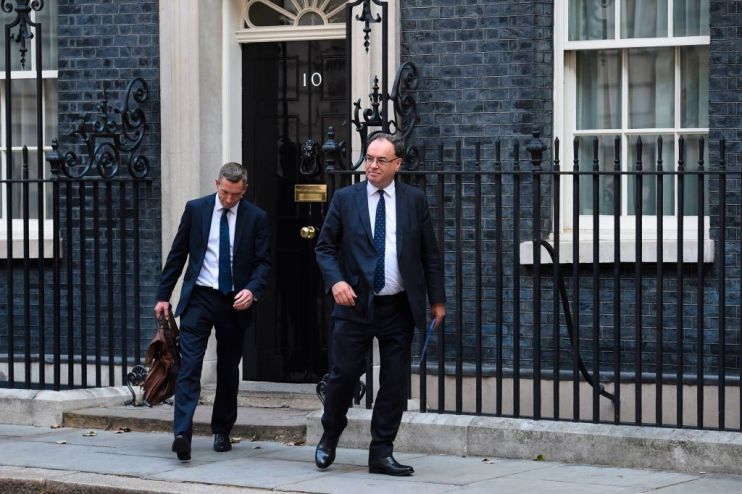Andrew Bailey: Three issues the new Bank of England chief will have to tackle

A safe pair of hands. That’s the cliche about the new Bank of England governor Andrew Bailey, who will take over the position from Mark Carney in March. The City and the British public will be hoping it is correct.
Bailey does indeed have about as much experience of the BoE as it is possible to get, having started there in the 1980s and worked in myriad roles including director for banking services and executive director.
Read more: FCA chief Andrew Bailey confirmed as next Bank of England governor
He was chosen to be the chief executive of the powerful Financial Conduct Authority (FCA) watchdog in 2016. However, a series of investment and financial scandals caused many to criticise him as out of touch.
Nonetheless, chancellor Sajid Javid overlooked these criticisms and opted for the Threadneedle Street veteran to take the helm at a key time for Britain’s economy.
Over the coming eight years, Bailey will certainly have to draw on his experience as Britain adapts to post-Brexit life and a changing world.
Here are three major issues that will consume much of the new governor’s time.
Brexit negotiations
After Boris Johnson’s thumping election victory, the UK is finally heading out of the European Union. A great deal of uncertainty remains, however, as Britain seeks to tie up a free-trade agreement with the EU by the end of 2020. The pound has already given up its post-election gains.
Phil Smeaton, chief investment officer at investment firm Sanlam UK, said that “tackling the economic challenges of a departure from the EU is still the top priority” of the Bank of England.
A key issue for Bailey will be supporting the City throughout tough negotiations during which financial services could become a sticking point. The talks are likely to revolve around the terms on which the UK is granted “equivalence” – the right of non-EU countries to access the bloc’s financial markets.
Read more: Bank of England holds interest rates at 0.75 per cent
His predecessor Carney warned against a deal that would see the City become a rule-taker. Bailey has spoken more favourably of an equivalence system, but will need to present a clear view on the issue and reassure the Square Mile.
Dealing with a downturn
The UK has not been in an official recession – two consecutive quarters of falling growth – since the financial crisis. Given that Bailey’s term is eight years long, he is highly likely to have to deal with a downturn.
That job has been made more complicated by the fact that interest rates of 0.75 per cent are close to record lows and the Bank’s balance sheet is inflated after years of stimulus bond-buying.
Paul Dales, chief economist at Capital Economics, said “some innovation” is likely to be needed. “It’s possible that monetary policy will be very different at the end of Bailey’s time as governor than at the start,” he said.
Climate change
Carney’s Bank of England has been a world leader when it comes to addressing climate change. For example, it is building a “catastrophic” climate stress test for 2021 that will see whether banks can cope with a rapidly warming world that could damage assets.
Read more: Mark Carney warns financial sector over climate change
Bailey has said little on the subject, but it seems unlikely that he will deviate from the path set by Carney, who has called on lenders and insurance firms to change their business models so they can survive in a net zero carbon emissions economy.
Ben Nelmes, head of public policy at the UK Sustainable Investment and Finance Association, said making Britain’s financial services sector “responsive to the big challenges facing society and the planet is one of the key challenges for the new governor”.